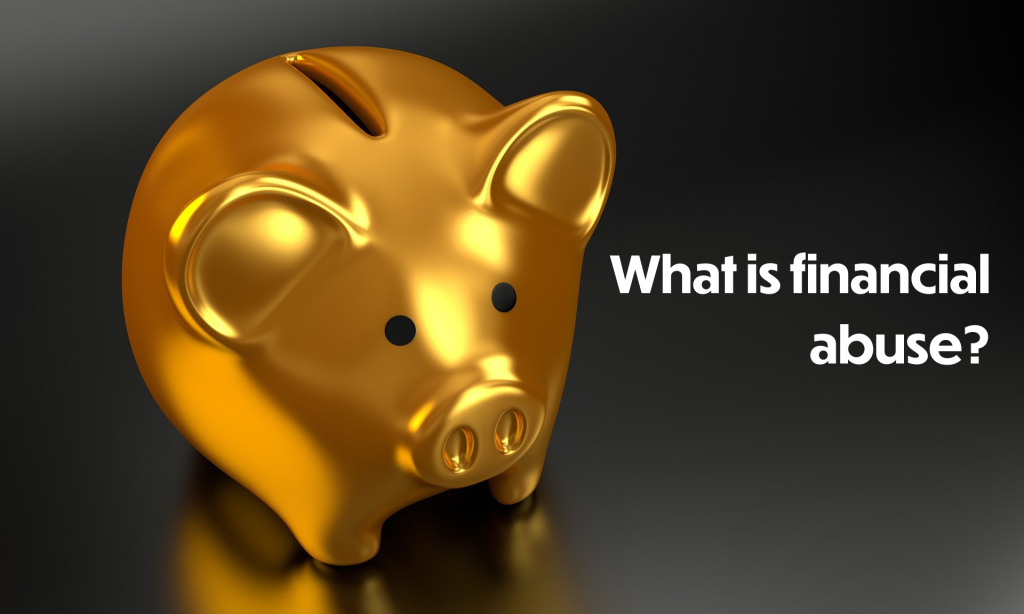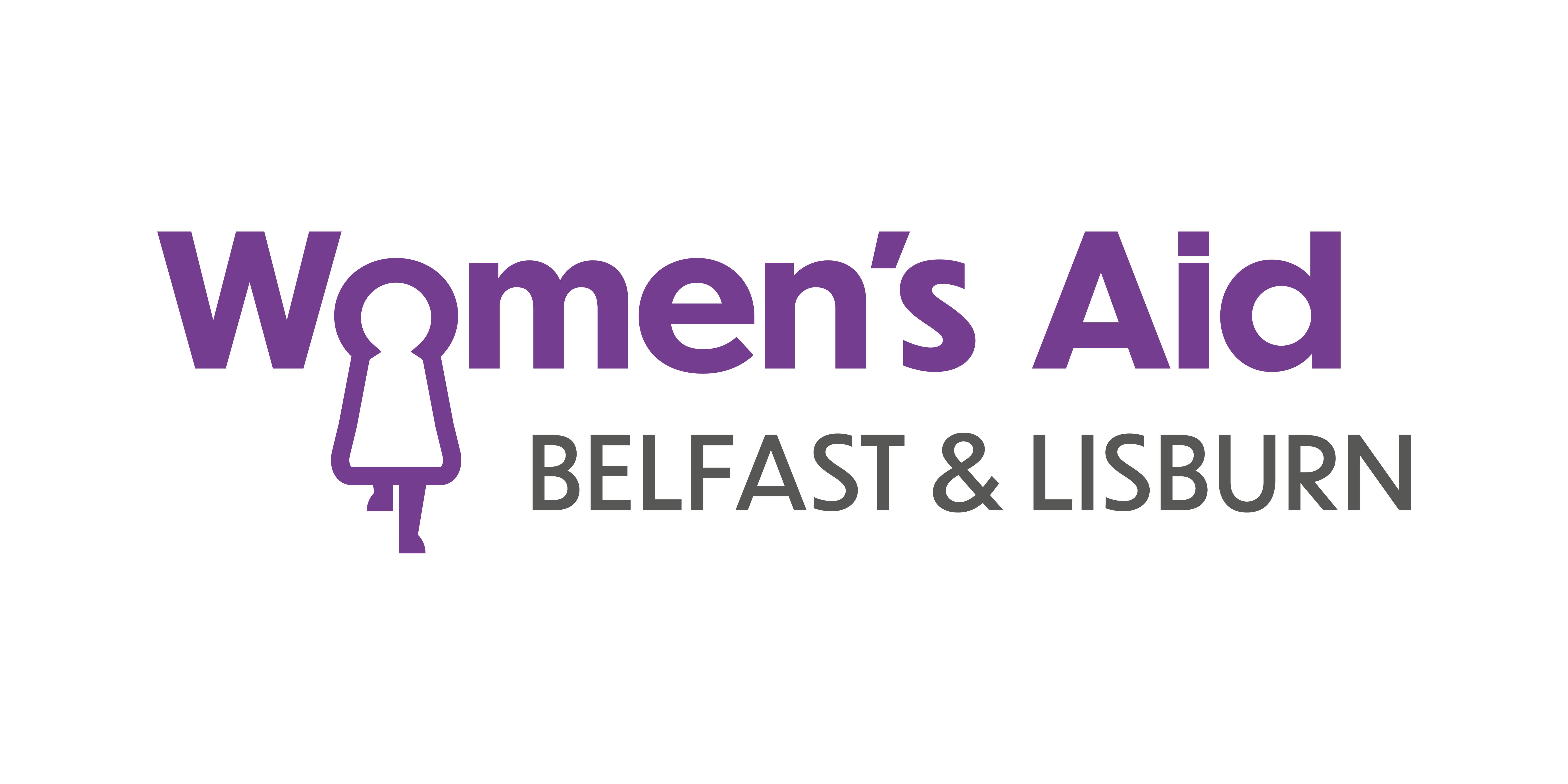Financial abuse is also sometimes referred to as economic abuse; both names include the same abusive behaviours, however the latter is sometimes seen as a broader definition which can help people to understand the many ways in which the abuse can be inflicted and its impact upon survivors.
In October 2020, the UK domestic abuse charity Refuge issued a press release in which they reported that 8.7 million people in the UK reported experiencing economic abuse, with 1.5 million of these instances beginning during the Covid-19 pandemic. That’s why it’s essential to raise more awareness of financial abuse and what can be done to help those in need.

What is financial abuse?
According to the Belfast Area Domestic and Sexual Violence and Abuse Partnership, the definition of financial abuse is “a means of controlling a person’s money and resources with the intention of increasing their dependency on the other person”. This essentially means that perpetrators of financial abuse don’t simply want money, but their aim is much more sinister; financial abusers want to exert power and control over their partner, making their partner ultimately become completely dependent on them for essential living items such as food, clothing, medicine, warmth, and even a roof over their head.
Financial abuse is rarely isolated, meaning that perpetrators often inflict other forms of abuse at the same time, such as sexual abuse, physical abuse or emotional abuse. In fact, according to Refuge’s ‘Know Economic Abuse’ 2020 report “85% of people who experienced economic abuse in their current or former relationship also reported other forms of domestic abuse, including physical, sexual and emotional abuse”. All of these types of abuse allow for the perpetrator to exert control and diminish their victim’s self confidence, as well as causing other serious harm.
Financial abuse UK statistics
To understand the severity of financial abuse in the UK, we think it’s important to share some statistics. Have a look below and see how many of these you were already aware of:
- 16% of UK adults self-identify as being a survivor of economic abuse
- A fifth of survivors have debt that they feel unable to repay after being subjected to
financial/economic abuse
- There are nearly a million people living in the UK right now who are in a relationship
with someone who is abusing them financially
- In the UK, 4.2 million women will experience economic abuse in their lifetime from a partner or family member
What are the signs of financial abuse?
Financial abuse is often difficult to spot, especially as an outsider, because unlike physical abuse there are no visual signs. However, financial abusers often exhibit certain behaviours and actions which are important to be aware of for yourself and others. Some of the signs of financial abuse that perpetrators may exhibit include:
- Enforcing “allowances” for their partner without their input on the matter
- Using their partner’s credit or debit cards without permission
- Taking out paid contracts such as phone contracts, TV or magazine subscriptions,
online gaming accounts etc in their partners name without permission - Gambling excessively and recklessly using funds from shared accounts
- Not allowing their partner to have their own bank account
- Making career or job choices for their partner
- Not allowing their partner to have a job at all
- Making their partner explain each and every purchase they make, as if they can’t be
trusted with money - Refusing to pay their share of the bills/rent/mortgage so that their partner ends up
financially worse off or in debt
All of these signs and actions are acts of financial abuse, which falls under the umbrella of coercive control. As we mentioned before, in the eyes of the perpetrator the purpose of their abuse is not simply to create financial difficulty, but to exert control and hold power over their partner until they become completely dependent on them.
These cruel actions can devastate victims and survivors, and can leave them feeling completely isolated and helpless, which is what abusers want them to feel. That’s why we at Women’s Aid believe it to be so important to raise awareness of the common signs of financial abuse, encourage people to reach out to those they’re worried about and urge victims to seek support.
The economic abuse of women
The UK-based charity Surviving Economic Abuse consistently gathers information and statistics on how financial/economic abuse affects women. For example, did you know that one in five women in the UK have experienced financial abuse in a current or former relationship? That is a great deal of women in the UK being subjected to financial abuse by an intimate partner.
Furthermore, according to Surviving Economic Abuse’s 2019-20 annual report, 80% of women said their mental health has been affected by financial abuse, showing that experiencing financial or economic abuse has a wider negative impact on the lives of women in the UK.
Have a look below to find out more about the economic abuse of women in the UK:
- More than half of women experiencing domestic abuse said they had no money so
could not leave - One in three survivors of abuse said they had to give up their home because of the
abuse they had experienced - Eight in ten women said this form of abuse spanned more than five years (compared
to two in ten men) - Women who experience economic abuse are five times more likely to experience
physical abuse - 95% of women who experience domestic abuse also report experiencing economic
abuse
(Source: Surviving Economic Abuse)
What can be done about financial abuse?
More awareness raising needs to be done about financial abuse – only just over a third of adults in the UK have even heard of it. Not only will more awareness raising help friends and family recognise the signs of financial abuse, but it will also help spread the message to victims that support is available if they’re experiencing any form of abuse.
For those experiencing financial abuse, we understand it may feel like there is nothing and no-one that can help, however this is not the case. There are provisions in place in banks and building societies to help anyone who is being subjected to financial or economic abuse; this can be particularly helpful if your partner is limiting your access to joint bank accounts or using your name or cards to make purchases.
If you don’t feel comfortable approaching your bank, or if it’s not applicable to you, you can reach out to an organisation like ourselves for confidential help and support.
You are not alone, no matter what kind of abuse you are experiencing or have experienced in the past. We can help and together we can get you free.
Show all posts
